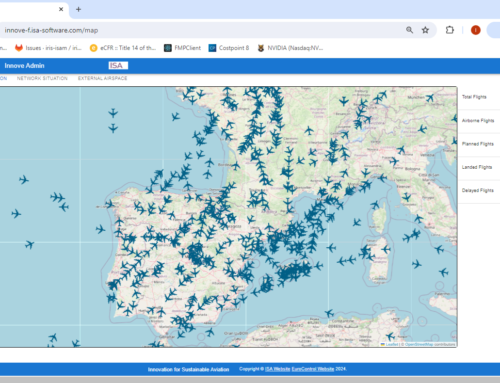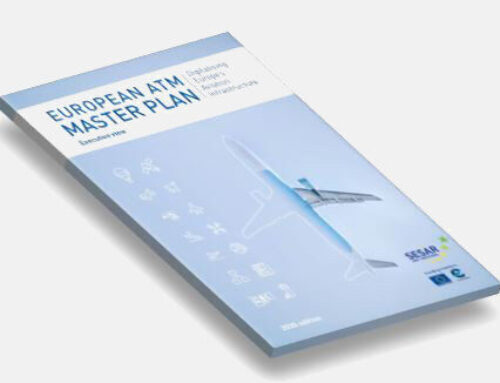ISA and its partners is pleased to report that the DACUS Project (Demand And Capacity optimisation in U-Space) is now launched !
Consortium:
CRIDA
ENAIRE
EUROCONTROL
INECO
TECHNISCHE UNIVERSITAT DARMSTADT
ISA Software
SOPRA STERIA GROUP
TOULOUSE METROPOLE
BOEING RESEARCH & TECHNOLOGY EUROPE S.L.U.
JEPPESEN GmbH
AHA
Abstract:
DACUS aims at the development of a service-oriented Demand and Capacity Balancing (DCB) process for drone traffic management. This overall objective responds to an operational and technical need in European drone operations for a tangible solution integrating the functionalities of the SESAR U-space services for Drone Traffic Management (DTM) to produce timely, efficient and safe decisions.
The project intends to integrate in a consistent DCB solution the relevant demand and capacity influence factors (such as CNS performances availability), definitions (such as airspace structure), processes (such as separation management), and services (such as Strategic and Tactical Conflict Resolution).
Therefore, to achieve the overall DACUS objective, five specific objectives are set:
1. Develop a drone DCB process, from strategic to tactical phase, integrating uncertainty of planned operations and guided by the definition of a U-space performance scheme that include the development of metrics for airspace capacity appropriate for an environment with no human controller.
2. Develop innovative services algorithms and enabling models and technologies as functional blocks of DCB process, able to support large number of simultaneous operations and to design and manage efficient and safe drone trajectories.
3. Define a structure for Very Low Level (VLL) airspace and a set of airspace rules that optimises the trade-off between capacity and safety, including the definition of separation management process.
4. Find the optimal balance between on-board separation intelligence and U-space separation service intelligence in tactical separation depending.
5. Refine Communication, Navigation and Surveillance (CNS) requirements in support of tactical and procedural separation, with a focus on urban environment.
More information are available on the DACUS project dedicated website
or from its linkedIn page.





